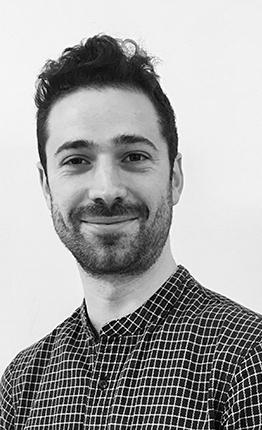
Robin Vigouroux
Sorbonne University Doctor and 2021 Chancellor's Award Recipient
This prize is a real scientific and personal achievement. I am extremely proud and honored to have been selected among the winners of the Chancellery of the Universities of Paris Prize, and I thank my thesis supervisors for their support.
Robin Vigouroux, a Sorbonne University doctor who defended his thesis in September 2020, is one of Sorbonne University's three winners of this year's Chancellery prizes. Here, we discover his atypical path to excellence.
What was your thesis topic?
During development, neurons must be able to navigate through the body and find their targets. Certain molecules, the axonal guidance molecules, tell the neurons which path to take. During my thesis, I was interested in the neurons in the eye, and more particularly in the neurons that connect the eye to the brain and that form the optic nerve. The first challenge of my thesis was to be able to visualize all the structures from the eye to the brain without any dissection and in three dimensions! For this purpose, I created a new protocol of tissue transparency, EyeDISCO, which has been patented in Europe. Thanks to this protocol, I was able to study two axonal guidance molecules, DCC and netrin-1, and I showed that these molecules were essential for the development of the optic nerve. These molecules also play a role in the maturation of photoreceptor cells, the cells of the retina that capture light. These results highlight new therapeutic targets for diseases such as glaucoma or age-related macular degeneration.
In a second part, I focused on binocular vision. In humans, the optic nerve sends axons to both hemispheres of the brain (bilateral projections). Consequently, the visual nucleus of the brain receives the signal from each eye. This slight difference between the two eyes allows our brain to deduce an image in three dimensions. This function has long been thought to be unique to mammals. However, very few studies had really looked at this question. Thanks to the EyeDISCO protocol, I analyzed the visual projections of many vertebrate species and discovered that bilateral projections already existed in fish, our common ancestors, more than 450 million years ago. This discovery highlights the importance of studying a variety of species.
What is your current activity? What is your professional project?
Following the defense of my thesis, I transitioned into 3rd year medical studies at Sorbonne University. This choice was motivated first by the desire to be closer to patients but also to acquire fundamental and clinical knowledge on various pathologies. My professional project is to become a research physician in ophthalmology and thus to approach research from a new angle. I continue to read scientific literature in my field and I hope to be able to resume research activities soon.
How did you apply for the Chancellery Awards? What do you expect from this award?
I applied through my doctoral school - Brain, Cognition, Behavior, which was looking for doctoral candidates in the final stages of their dissertation who might be eligible for the Chancellor's Award. To apply, I provided a dossier including a 10-page summary of my thesis, a CV, and several letters of recommendation. I was supported in this process by my supervisor and my laboratory director.
To complete this thesis, I had to make many sacrifices and work long hours, so this prize is a real scientific and personal achievement. I am very proud and honored to have been selected among the winners of the Chancellery of the Universities of Paris and I thank my thesis supervisors for their support.
Pour en savoir plus sur le sujet de Robin Vigouroux
- Article in eLife on optic nerve development.
- Video from Science magazine on the evolution of bilateral vision.
The award ceremony took place on December 7 in the Grande Amphithéâtre of the Sorbonne. Damien Fontvieille and Peter Nahon, PhDs from the Faculty of Arts and Humanities, also received the Chancellor’s Award for their thesis on this occasion. Damien Fontvieille defended his thesis in history in December 2020, under the co-direction of Alain Tallon and Olivier Poncet. His subject was entitled "Galaxie Bochetel : un clan de pouvoir au service de la Couronne de France de Louis XII à Louis XIII". Peter Nahon defended his thesis on "Les parlers français des israélites du midi", under the direction of Professor Jean-Pierre Chambon in June 2020.
